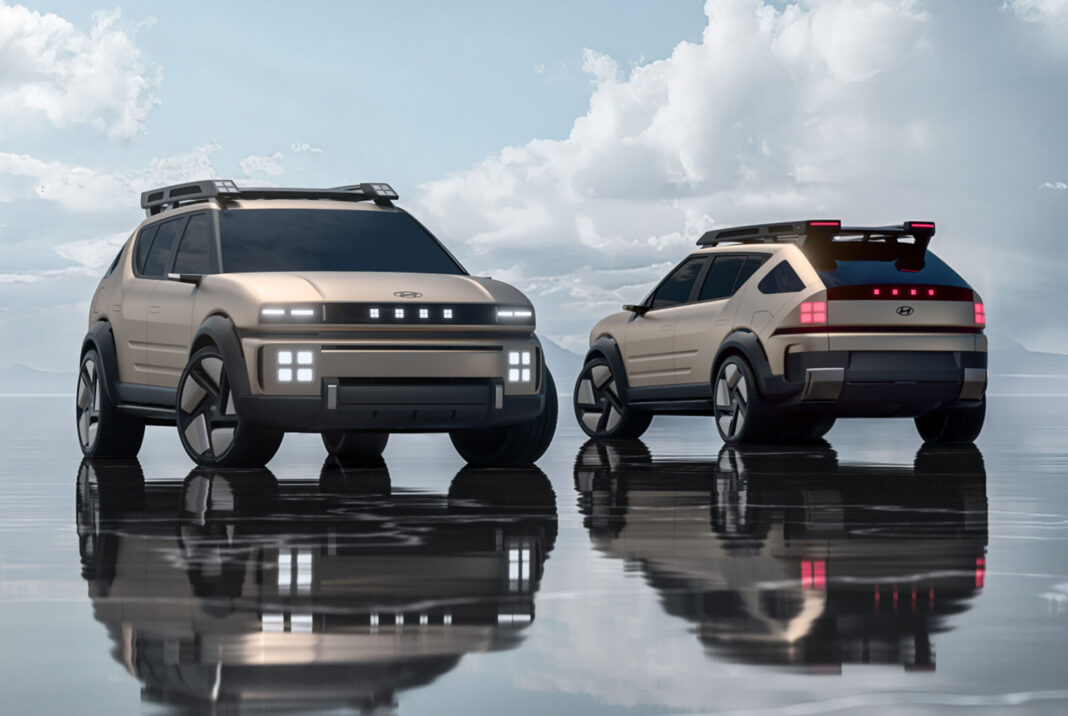Hyundai on Thursday provided a first look at a concept previewing a production-bound hydrogen fuel-cell vehicle due in the first half of 2025.
Called the Intium SUV, the concept is slated to make its formal debut at the 2024 Los Angeles auto show in a few weeks’ time, with a simultaneous unveiling at the 2024 Guangzhou auto show in China. Hyundai also plans to unveil the production-ready Ioniq 9 battery-electric SUV in L.A.

Hyundai Initium concept
The Intium previews the replacement for the Hyundai Nexo, but adopts the boxy, more rugged design theme Hyundai introduced with the current-generation Santa Fe, and which is expected to proliferate throughout the automaker’s SUV lineup.
Like the Nexo, the Intium is driven by an electric motor that gets its power from a fuel-cell stack and supplementary battery pack. Here the motor produces 201 hp, a 50-hp upgrade over the Nexo, which Hyundai says is made possible by extracting greater output from the fuel-cell stack, as well as increasing battery capacity. Hyundai also quotes a 400-mile range, although it’s unclear what testing cycle that’s based on.

Hyundai Initium concept
The Intium name—derived from a Latin word meaning “beginning” or “first”—is meant to reference Hyundai’s pioneering role in fuel-cell vehicles, first with fuel-cell versions of the Tucson and then with the Nexo, which entered production in 2018. More recently, Hyundai has shifted focus to fuel-cell semi trucks. In 2021, the automaker announced plans to bring a fleet of semis to California for testing, and earlier this year it discussed fuel cells as part of a potential partnership with General Motors.
Underdeveloped infrastructure remains one of the biggest obstacles for fuel-cell vehicles. The federal government has committed $8 billion to regional hydrogen hubs, which aim to scale up production for transportation uses, but lawmakers have questioned whether emissions generated by these hubs will cancel out any potential savings from displacing fossil fuels.

